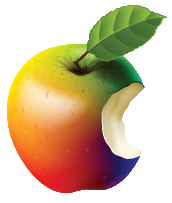Cancer Book Reviews
This month’s review is of “Cancer What Is It? How Do You Get Cancer? and What Is The Best Cancer Treatment?” by Steven R. Newton. He has had several people close to him who have either been affected by cancer, and/or died from it.
Motivated by the desire to understand better what someone close to him who was a cancer survivor was going through, he started down a path of wanting to understand what cancer was, and ended up becoming informed enough to determine to prevent cancer in himself. His main premise is that you, the individual, need to take some responsibility for your own cancer prevention and treatment, and that you should always seek out a second opinion when diagnosed. That second opinion, he maintains, should include researching those three questions: “Cancer What Is It? How Do You Get Cancer? and What Is The Best Cancer Treatment?” He helps you do that. He also maintains that the more you know about cancer and its treatments, the more informed you are in making your own decisions around cancer treatment and prevention.
Newton starts out by providing some context around the business of cancer, and how there are two different schools of thought around cancer treatment: (1) conventional western cancer medicine, and (2) traditional eastern cancer medicine. He explains what cancer is, how we get cancer, and how the body fights cancer. He includes some good information about how there are populations in this world with much lower rates of cancer, almost non-existent in some cases, that the western world and cites some scientific research to support that.
Newton then takes a look at some of the mainstream conventional cancer treatments, such as surgery, radiation, and chemotherapy, as well as some of the concerns associated with them. He also briefly covers hormone therapy, immunotherapy and some other conventional cancer treatments. This is followed by a little more in-depth look some of the more popular alternative cancer treatments, and their concerns, and identifies an incomplete list of over over 60 other treatments. This list is broken into the following main categories: nutritional, herbal & traditional, technological, psychological, and includes a few other interesting treatments as well.
He explains the importance of detoxification as it relates to ridding the body of heavy metals and other toxins that we collect by inhalation, eating, and absorption through the skin. He emphasizes the importance of cancer detoxification and then covers off a good piece around diet and nutrition, and how that relates back to the body’s immune system and its ability to fight diseases. He identifies some of the diets that are common to several of the groups of people around the world with the lower cancer rates. Next, there is a good description of vitamins, how the body uses them, and the differences between synthetic and naturally occurring.
The book ends off with some information shared around cancer survivorship, which is partly based in his own personal experiences with someone close to him, and then some practical information on living with the cancer patient, and end-of-life planning. There is a list of resources which provide a good place to start when doing your own research in to what cancer is.
When you put it all together, this book helps to provide a good basis of information on which to build your own personal cancer prevention plan. For about the same price as a fast food meal (which may contribute to causing cancer), you get practical information around:
• what cancer is and how the body deals with it
• how to prevent cancer using things that are within your control
• the pros and cons of conventional and alternative cancer treatments
• the importance of detoxification and nutrition in fighting and preventing cancer
• some tips around surviving cancer and living with the cancer patient
• end-of-life planning
For those of you looking to understand more about cancer, whether it be because someone in your world is affected by it or you don’t want to get it and are looking to inform your own cancer prevention planning, “Cancer What Is It? How Do You Get Cancer? and What Is The Best Cancer Treatment?” provides good value.

